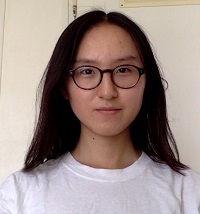Lunch seminar with Sarah Lee
Curiosity Killed the Court: comparative analysis of the backlash and (un)revival of the EurAsEC Court and the SADC Tribunal
Abstract
Although a large body of literature on international courts focuses on the factors of their success and their effectiveness, "failed" courts - those that were dismantled, are dormant, or never put into operation, are scarcely studied. Yet, analysing these courts could contribute to knowledge about the reasons and factors of international court creation, and help assess strategies used by ICs in order to reinforce their legitimacy and ensure their survival.
In this seminar, the trajectories of two courts, the EurAsEC Court, and the SADC Tribunal, will be studied.
First, it must be noted that both courts seemingly share a similar fate: after facing defiance and backlash from Member States, both courts have been reshaped, with more restricted powers. The EurAsEC Court was established in 2000, adjudicated its first case in 2012, and was dissolved in 2014, after rendering 22 cases. The SADC Tribunal was established in 2005, and after issuing controversial decisions in 2007, was suspended in 2010 and was (un)officially disbanded in 2012, with a caseload of 15 rulings. Moreover, in both cases, a first protocol was signed and ratified in 2000, and a revised one was drafted in 2014, in order to reinstate an “inheritor” court - the EAEU Court of the EurAsEC Court, and none for the SADC Tribunal.
But who, and what, “killed” those courts? Why and how were they “revived”?
This paper will argue that the perceived overstepping of competence of the delegated authority (the courts), by the delegating authority (the Member states), links these two courts, and that it was often a too bold or aggressive decision, or series of decisions, with a manifest desire to expand their jurisdiction, that led to strong backlash from states.
Using the existing strategic models, which theorize the strategies and tactics of ICs, this paper will try to analyze the legitimation strategies used by these courts with different audiences (interactions between ICs-states, ICs-national courts, ICs-bar and lawyer associations, ICs-civil society), and assess their efficiency.
Furthermore, it will show that non-organic growth of doctrine and principles associated with judicial expansion, illustrating a sort of “spurious emulation” of existing successful courts, can prove to be tempting but ultimately fatal. This is likely to be the case especially if the Member states are, from the beginning, reluctant to delegate part of their sovereignty, and have the opportunity to restrict the powers of the IC.
Finally, the revival of those courts will be analyzed, in order to observe how true the above hypotheses hold. Indeed, the new protocols that have been drafted follow a similar pattern: the courts are much more constrained, in jurisdiction and competence, with the removal of the preliminary ruling and infringement procedures in both cases, as well as the courts being explicitly limited in their jurisdiction to the issues inscribed within their respective Treaties.
As such, the trajectories of the two courts - the dismantling of the SADC Tribunal, and the revival of a weaker Eurasian Court, will also be compared, through the study of the factors that led to these differences.
Speaker bio
 Sarah has been a PhD researcher at the CLTEJ (Center for Legal Theory and Empirical Jurisprudence) at KU Leuven since December 2023, under the supervision of Prof. Arthur Dyevre.
Sarah has been a PhD researcher at the CLTEJ (Center for Legal Theory and Empirical Jurisprudence) at KU Leuven since December 2023, under the supervision of Prof. Arthur Dyevre.
Her research focuses on the empirical analysis of "failed" international and regional courts, by observing the factors, mechanisms, and consequences of international court failure. More specifically, her research project aims to map the trajectories of aborted, dormant and dismantled courts, assess the effectiveness of legitimization strategies used by courts in uncertain environments, and create a typology of "failed" and "successful" courts. Her study will rely on a combination of quantitative analysis and case studies.
She holds a Bachelor's Degree from Sciences Po (2017-2019, cum laude) and a Master's degree in Law from l'École de Droit de Sciences Po (2020-2023). During her studies, she spent a year at the University of Cambridge (2019-2020, first class ranking) and a semester at Stanford University (2022, Honors Ranking in EU law course).
Meeting ID: 621 2614 4474
Passcode: 465571
